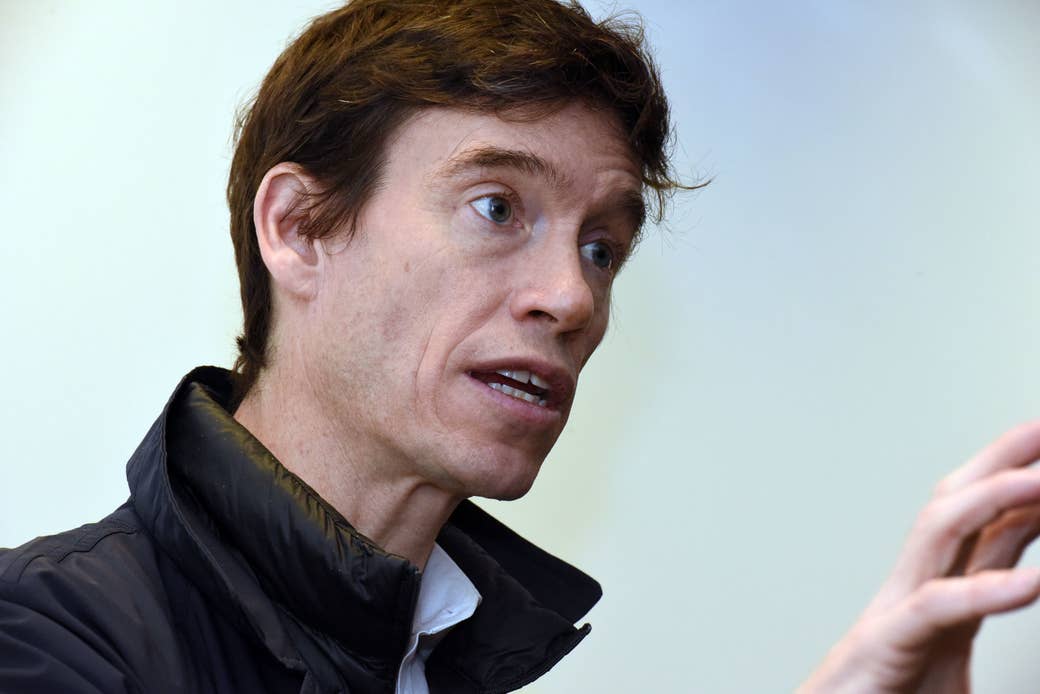
Rory Stewart, the former Tory leadership hopeful turned independent London mayoral candidate, is giving his campaigners a pep talk. "Please remember this is the very beginning. It will be a bit chaotic," he says. "This is like a startup pizza business where the oven keeps breaking."
More than a hundred people have gathered in Stewart’s campaign HQ in Islington on a rainy Saturday — raincoats on, clipboards in hand — to help gather intelligence from local residents about what needs to change in their area. He asks for a show of hands on who has canvassed before. Most in the room have not.
"That’s great!" he says, and gives some pointers. "Ninety-nine per cent of people are polite but think about politics about seven minutes a week. Do not be ashamed about knocking on doors. That is part of democracy. You may see embarrassing things — you may see someone turn up to the door naked, which I have seen. You may hear an almighty bark; I was once campaigning with someone who had the tip of his finger removed by a collie."
This doesn’t appear to put too many people off, but there are some concerns. One woman asks why Stewart has decided to launch his campaign now, in the middle of a general election campaign, when people are really fed up with politicians. The mayoral election is not until May 7 next year. Stewart concedes that the biggest impact will be in the last six weeks — but says this groundwork is essential because he is trying something very different.
Most canvassing involves party activists knocking on doors to ask how people are voting. Once this potential support base has been identified, the party follows up to make sure those people get out and vote. It will have a raft of key policies and slogans tailored to a certain section of the electorate — stress-tested in focus groups — as well as attack lines against rival parties.
But Stewart believes this traditional approach is divisive, and he is attempting something new — getting teams of supporters to knock on doors and find out what matters to people, not whom they plan to vote for. Initial questions include: "What would you change about this neighbourhood in the next week?"
In the new year, he then plans to go back on the doorstep with questions about the issues, both local and citywide, that need the most attention. The idea is to build a detailed picture of the changes people want to see across the city, which will eventually inform his manifesto.
“This is what [Emmanuel] Macron did in France,” Stewart tells his campaigners. Macron’s route to presidential power — via his En Marche movement — kicked off with the "Grand Marche", where volunteers carried out thousands of in-depth interviews with voters across the country, which helped build his campaign’s policies.
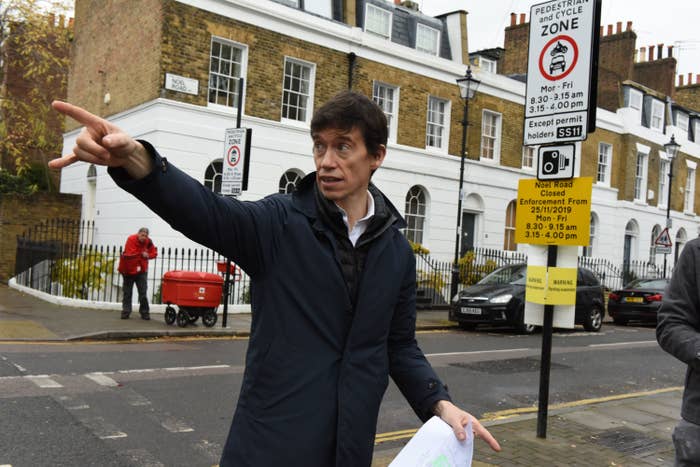
Stewart tells BuzzFeed News that his strategy, which he calls LondonSpeaks, is "very consciously not political" and aimed at governing for all, not one fraction of the populace. "This is about trying to help people to see democracy as a joint project — not about some fake 'great leader', but about us together solving their problems," he says.
He is painfully aware, however, that the mayoral race will be an uphill struggle against Labour incumbent Sadiq Khan. Bookies currently have Stewart in second place, above Lib Dem Siobhan Benita and Conservative Shaun Bailey. "I mean, he [Khan] is obviously the frontrunner by a long way, I’m obviously the underdog," Stewart tells BuzzFeed News. "But five and a half months is a long time in politics, and it’s amazing how much momentum you can have. Remember we’re right at the very beginning."
Many people in the room signed up for Stewart’s mayoral campaign after watching him become the surprise star of the Conservative leadership contest in the summer. He finished fifth, beating foreign secretary Dominic Raab, and impressed many on the left of the party by eschewing Tory soundbites in favour of some deep thinking about how to do politics differently.
Stewart’s candid conversations with voters across the country, documented in shaky handheld videos under the hashtag #RoryWalks, became infamous. He resigned from the cabinet, saying he could not serve under new PM Boris Johnson, and in September he was expelled from the Tory party for opposing a no-deal Brexit. He stepped down as MP and announced last month he was running as an independent for London mayor.
Since the leadership contest, Stewart tells us, he is routinely approached by people in the street and on the Tube. These are "mostly positive" encounters, although he recalls how a man recently walked up to him at 9am, tapped him on the shoulder, and said in his ear: "cunt."
Stewart says he knew that standing for Tory leader was a huge risk and that if he failed, his "political project in Parliament was finished". This was about more than his own fate, he insists: Johnson’s victory sounded the death knell for any attempt to move the Tory party into the centre ground and find a compromise on Brexit that could bring the nation together.
"In a way that wasn’t totally clear to me at the time, that run for leadership was a final push to say we can be different,” Stewart says. "And in losing — in particular, losing to Boris rather than other candidates that were more on the centre of the party — it then completed a thought I’ve had for many, many years. I’ve always felt that somewhere in local politics actually is the energy of our time, that it’s much more immediate than parliamentary politics, the impact is much more direct, it’s much more intimate."
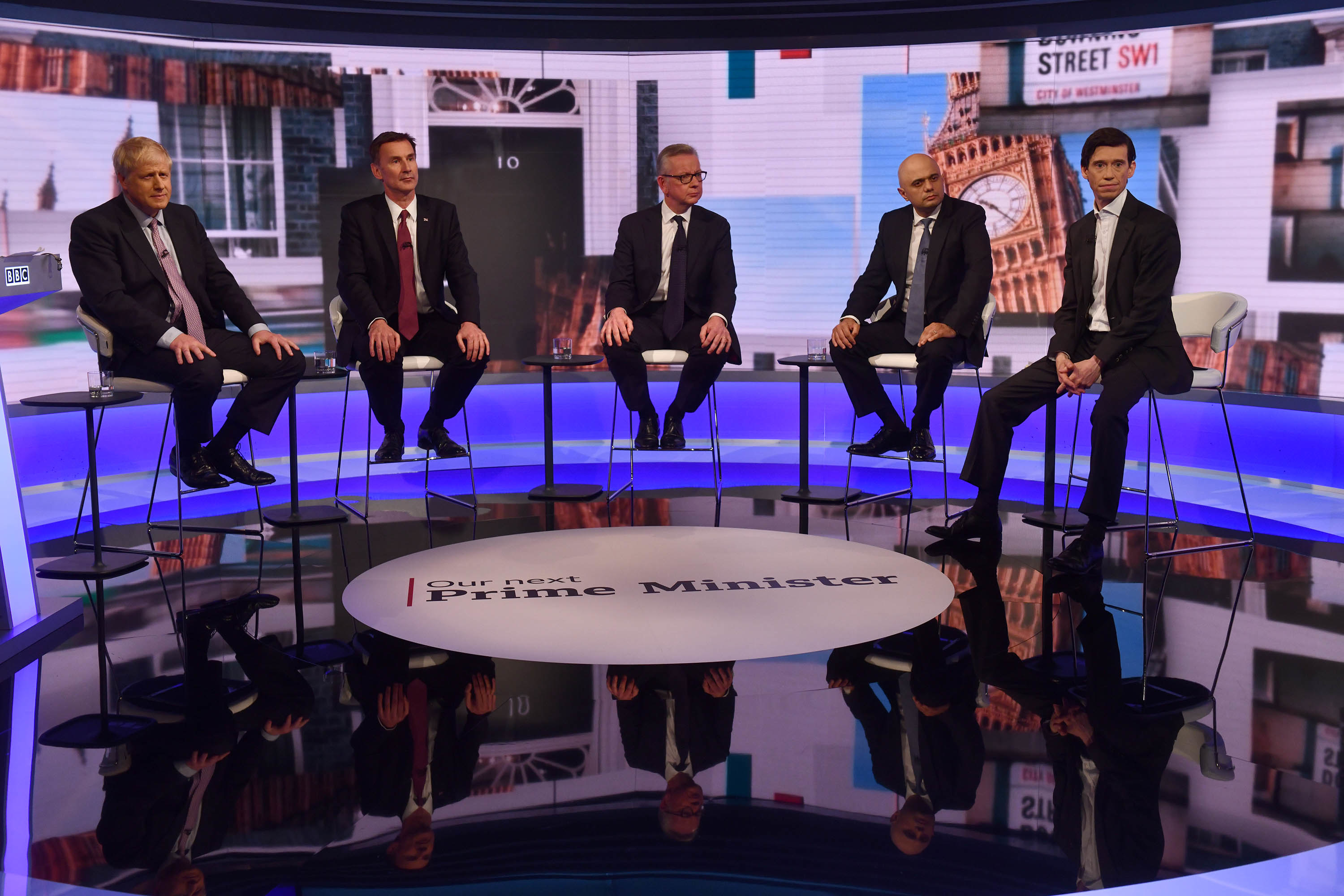
He says that trying to solve people’s problems is "actually an incredibly fulfilling, energising experience, as is the experience of listening — it is, I'm embarrassed to say, just fun".
But a lighthearted conversation with three black men in Brick Lane backfired when Stewart later described them as "minor gangsters" (the men, members of an Irish rap group, demanded he apologise). Stewart was also criticised in 2010 for describing how some areas in his Cumbria constituency were "pretty primitive, people holding up their trousers with bits of twine".
Does he consider himself gaffe-prone? "No, I wouldn’t, the fact that you’ve found basically two examples — you might find one or two more out of 10 years of professional politics," he says. "The ['minor gangsters'] comment was completely wrong to say, and I apologised immediately. And I think it's incredibly important both for me to apologise but also to understand why it was the wrong thing to say."
He insists he’s not a "free-wheeling, shoot-from-the-hip kind of politician" but a thoughtful one; suggesting that his words are sometimes taken out of context, he says he is "very trusting with journalists and normally totally vindicated".
"My colleagues are paranoid, saying, 'You can never trust a journalist, nothing's ever off the record, don’t be crazy'," he says. "And actually the truth is that being trusting and being as open as you can in the end keeps you sane — the terrible risk of politics is becoming a pompous bore, which happens to us all eventually. The only way of slowing that down a bit is trying to be as candid as you can be."
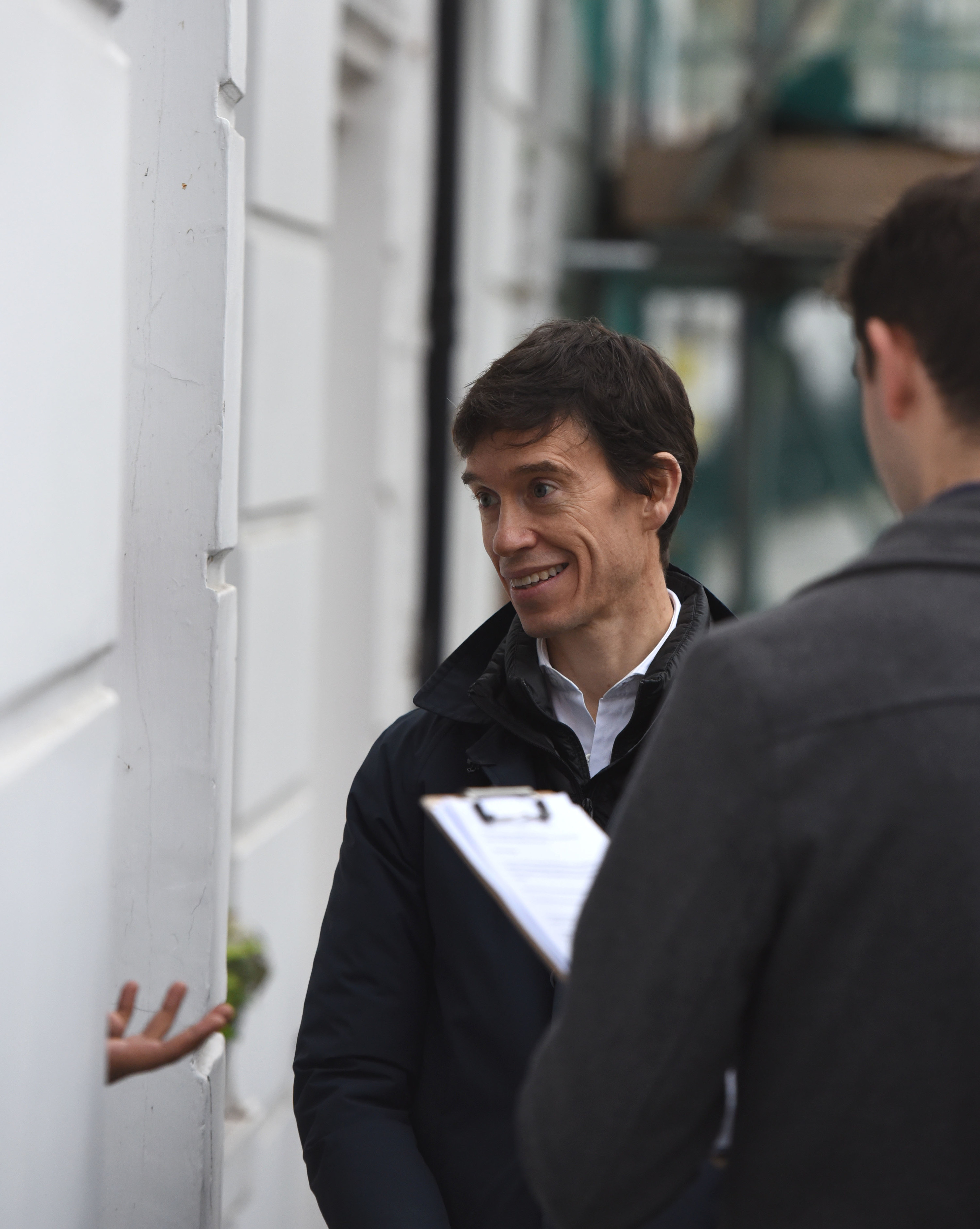
Some 3,500 volunteers in London have signed up to Stewart's mayoral campaign, and he hopes to recruit many more by Christmas. The big question that will determine whether people vote for him, he says, will be how they see the mayor's role; he wants to remind voters that the mayor has huge powers, particularly over policing and transport, and is not just a figurehead. This is a recognition, perhaps, that Khan is still widely popular — particularly among younger voters.
Stewart is careful not to personally attack Khan, unlike many in the Conservative party who have repeatedly blamed him for a rise in knife crime.
"He was a good mayor for a particular period," Stewart says, slowly. "It was a great thing — I felt proud — when he was elected, and I think he has done good things. And not all of this will be his fault. There will be many other reasons why safety isn’t good, including funding.
"But what I learned in prisons [Stewart served as prisons minister under Theresa May] is that in the end, you really don’t have any alternative but to judge somebody by results. And in all our lives and our jobs, there will be extraneous external factors — luck, etc — but whether you are a mayor or a business chief executive or the manager of a sports team, in the end you have to be judged on how you’ve done."
Back in his campaign HQ, people are helped to download an app on their phones that will allow them to input the answers from voters on the doorstep so it can be easily aggregated at the end. Everyone is split up into teams of 10 and told to target a different street, knocking on doors in pairs. We head out with Stewart, who is joined by a mix of supporters who all have their own reasons for backing him.
Philip, 19, from North East Somerset, is a Tory member who backed Stewart for leader but has also canvassed for Commons leader Jacob Rees-Mogg. He says he likes Stewart’s "charisma" and respects his use of "direct democracy" on social media.
Judy, who is in her sixties, moved from South Africa to Britain 17 years ago. "I woke up recently thinking I can't stand how politics has gone in this country," she says. "I can't stand the lies and the name-calling. We have to do something here. We need trust in this country. Rory is always curious and listens to other points of view."
The first door Stewart knocks on is opened by a man in a jumper and pyjama bottoms who promptly says "Best ask my wife". Stewart chats to her for a good 10 minutes about the state of the pavements, the lack of local activities for youngsters, and the dangerous road junctions.
"I like the directness," he tells us afterwards. "If I were lucky enough to be the mayor I would want to be out in the streets a lot, with people literally poking me in the chest."
Stewart tells of a recent visit to Lewisham Market where he met some Afghan fishmongers and joked with them in Dari — one of his 11 languages — about them selling seafood despite coming from a landlocked country. (This anecdote is pure Stewart.)
"Then I move on to a guy who’s a third-generation self-proclaimed Cockney whose family has had that stall since just after the First World War, and then another," he says. "And coming out of everywhere is all the exuberance and differences of London."
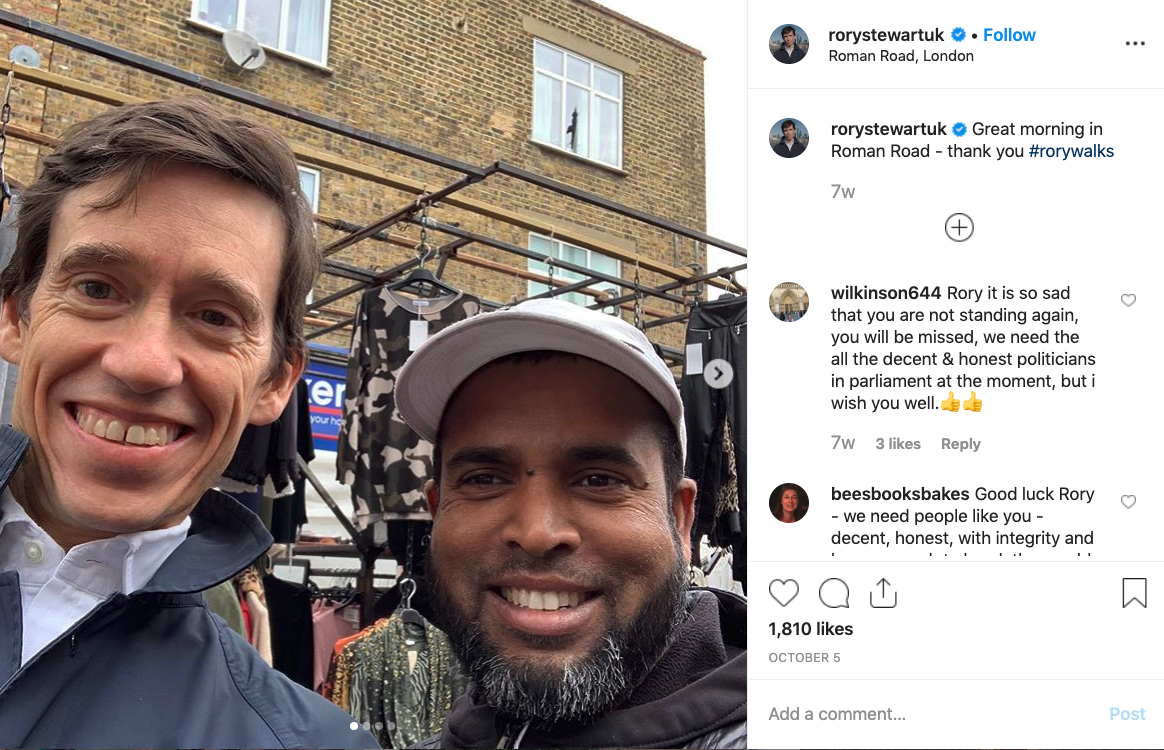
But it is hard to see what Stewart has in common with many Londoners, given his extraordinary background and privileged upbringing. The relatability question could be a big challenge for him given Sadiq Khan's more humble upbringing.
Stewart was educated at Eton and Oxford, served in the army in his gap year, tutored Princes William and Harry, joined the Foreign Office as a diplomat (some reports suggest he was a spy, which he denies), walked 6,000 miles across Asia and wrote a bestselling book about it, worked as deputy governor of the Maysan province in Iraq, taught at Harvard, ran a charity in Afghanistan for Prince Charles, and — finally — became MP for Penrith and the Border in 2010, rising to international development secretary earlier this year.
So how exactly is he relatable to voters; what does he know of the daily grind? Stewart pauses while he ponders this question. "I think the first thing is that every one of our lives is very individual and different, each one of us carries our own family histories, our own suffering," he says.
"Many of the things that keep us in common may be the loss of a parent or illness or stress at work, the commute, our neighbourhood. There isn’t a thing called a Londoner — there are over 600 different villages and many, many ways of being in London. And I think any politician who pretends that they can understand everybody on the basis of their backgrounds is probably confusing themselves.
"I want you to judge me roughly in the way you might judge anyone else — a teacher, doctor, someone running a coffee shop — judge me on the quality of my coffee rather than the backstory."
He concedes that spending 21 months alone walking across Asia, tramping through the snow and living on bread, is "quite a different experience to what many people live". But he says that talking of a "real Londoner" is "dangerous" language.
"The point of being a Londoner is that it embraces every type of income, ethnicity, religion, lived experience," he says. "In some ways I’m unusual because I’m still in the same house I was in 46 years ago, I still go to the same GP clinic I went to as a baby, I walk my kids to the same school I went to when I was four — so in some ways I’m more rooted than most Londoners."
He even tells how his great-grandmother was born on his street in South Kensington in 1905 and the neighbours put straw down on the street so the horses' hooves wouldn’t wake her.
Stewart says that public service in his blood — his father was in the army and his mother's father was a GP — and that if he fails to become mayor, he will find another way to "change the way we talk and operate as citizens" either as a community organiser, writer, or speaker.
He opens his arms wide: "There are these problems this size, and we’re…" He shakes his head, dismayed at the thought of it all.
Does he see himself as the Emmanuel Macron of British politics? He looks taken aback. "Er, no," he says. "No. I think what we have in common is we’re both people who were originally parts of political parties and then decided to go independent, and we both believe in the centre ground.
"But I think his style is much more Napoleonic than mine. I’m genuinely trying to see if we can have a model which isn’t that much about me. I’m quite interested in leadership that admits quite a lot of what you don’t know, and listening."
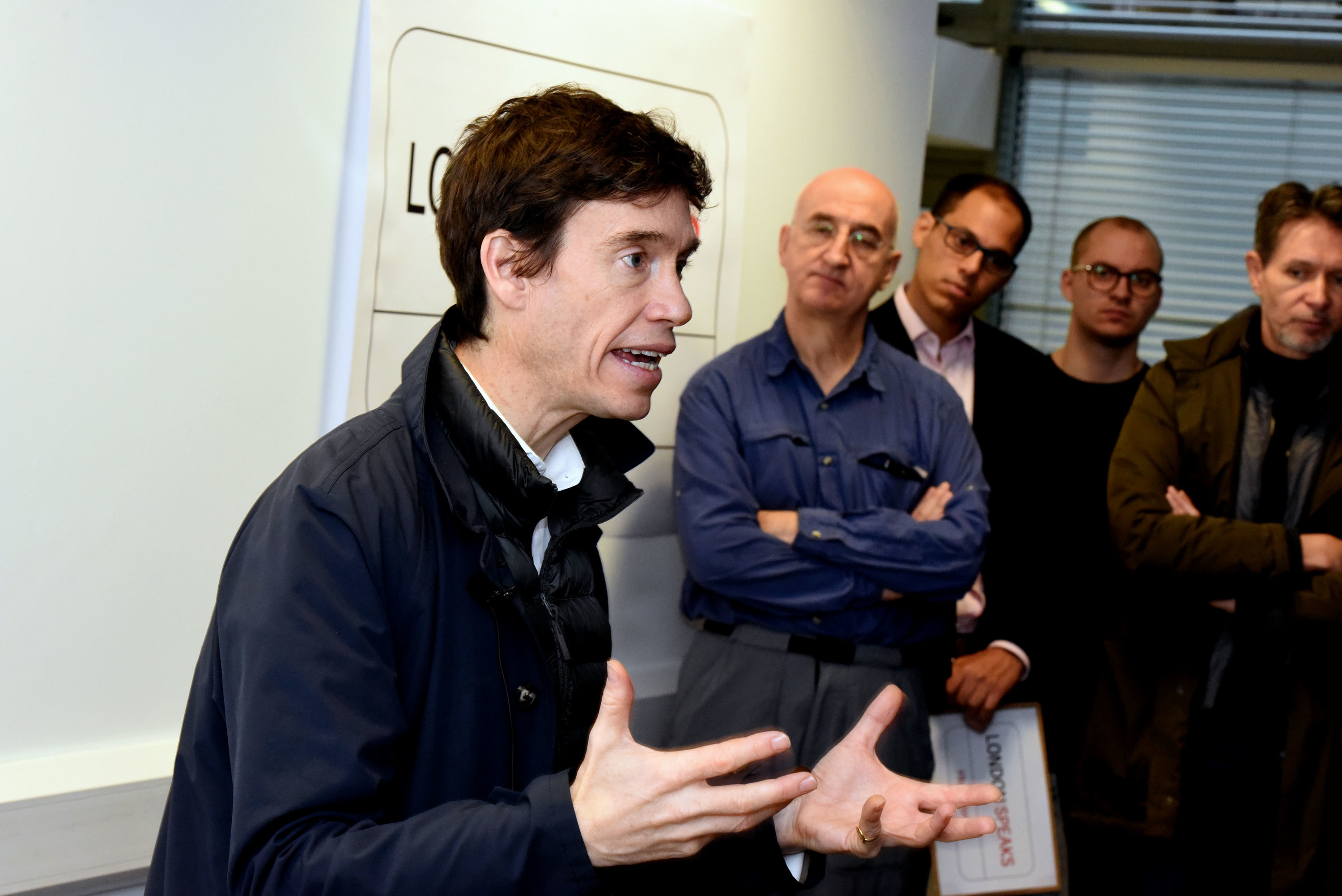
Stewart says he is working "24/7" on the campaign and making "decisions all the time, like this", snapping his fingers. As we speak, messages keep popping up on his phone on the table in front of us. "Eleven questions have come in since we’ve started talking!" Stewart says. He scrolls through his WhatsApps, reading some of them out.
There are policy suggestions, such as making Oxford Street pedestrian; a campaign manager suggests giving his team the day off next week because they are "going for it hard and it’s not a sustainable rhythm"; and former Tory MPs Anne Milton and David Gauke have been in touch to ask if he will come and campaign for them. Will he? "Oh yes, they’re running as independents. I’m independent all the way," he says.
Stewart says he will make safety his number one priority in London, pointing to his record as prisons minister when the number of assaults fell in seven of England’s 10 worst prisons. "A great city needs to be safe," he says. "I would hope that you vote for me because I can make you safe and that in four years' time, the city will be safer than it is now."
Knife crime in London has soared in recent years, with the number of teenagers stabbed to death reaching its highest level since 2008. Stewart tells of a friend whose daughter "knows three people, in quite a nice school in north London, who have been either killed or seriously wounded in knife attacks including a friend who was attacked with a machete outside the British Museum".
On affordable housing, he says, "tens of thousands of homes" could be built on Transport for London land across the city. He gets out his phone and shows us a photo of the Oval tube station, a one-storey building that stretches out along a wide, busy road.
"You could put on top of that an enormous amount of housing, and you could do that again and again!" he says. "I bet I could go to universities and run a competition for architectural students to design how to redevelop these buildings."
It's been nearly three months since Stewart was kicked out of the Tory parliamentary party by Johnson. Have they spoken since? "Once, yes, it was perfectly smiley." Stewart says he and Johnson are "complete chalk and cheese": "We have a totally different view about what public service is."
He warns that the truth is routinely being stretched by politicians such as Johnson. "It’s very dangerous," he says. "The risk is that if it becomes normalised, the public will come to feel that all politicians are talking nonsense all the time, so it doesn’t really matter — 'We might as well go for the most amusing one.'"
He adds: "The reason why lies flourish is they’re more fun, and the reason why the centre ground has died is it’s become dull. So you have to make the business of government of running things well interesting. And it is interesting when you take a second to think about it…" He pauses for a moment.
Stewart does plan to vote in the general election but won’t tell us who for. Who does he think is going to win? "I literally have no idea."

